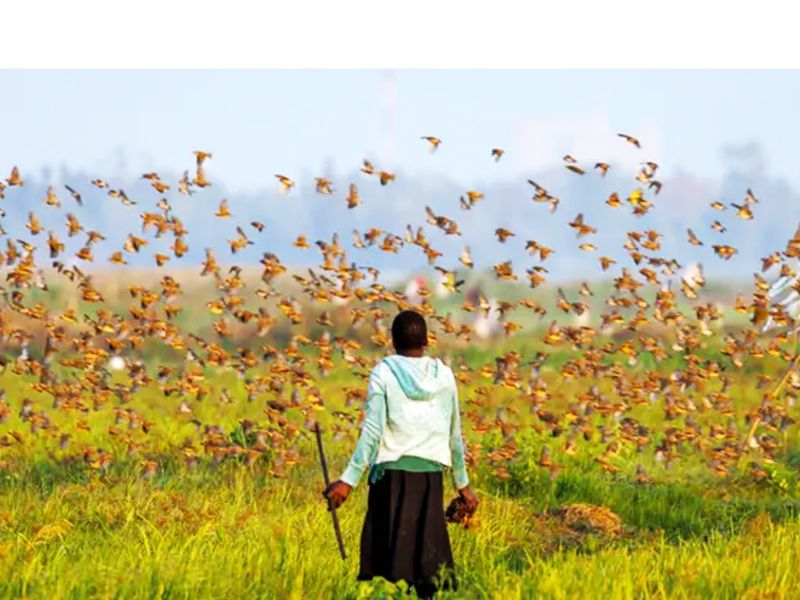A drive by the Kenyan government to kill up to 6 million red-billed quelea birds that have invaded farms will have unintended consequences for raptors and other wild species, experts have warned. The continuing drought in the Horn of Africa has reduced the amount of native grass, whose seeds are queleas’ main food source, causing the birds to increasingly invade grain fields, putting 2,000 acres (800 hectares) of rice under threat. About 300 acres of rice fields have been destroyed by the birds.
A single quelea can eat up to 10 grams of grain a day, according to the Food and Agricultural Organization (FAO). Farmers in western Kenya stand to lose close to 60 tonnes of grain to the birds. In 2021, the FAO estimated crop losses attributable to the birds amounted to $50m (£40m) annually.
The spraying of fenthion, an organophosphate pesticide, has been the method of choice in fighting the pests in Africa, but the chemical has been described by researchers as “toxic to humans and to other non-target organisms”.
Credit: theguardian.com









